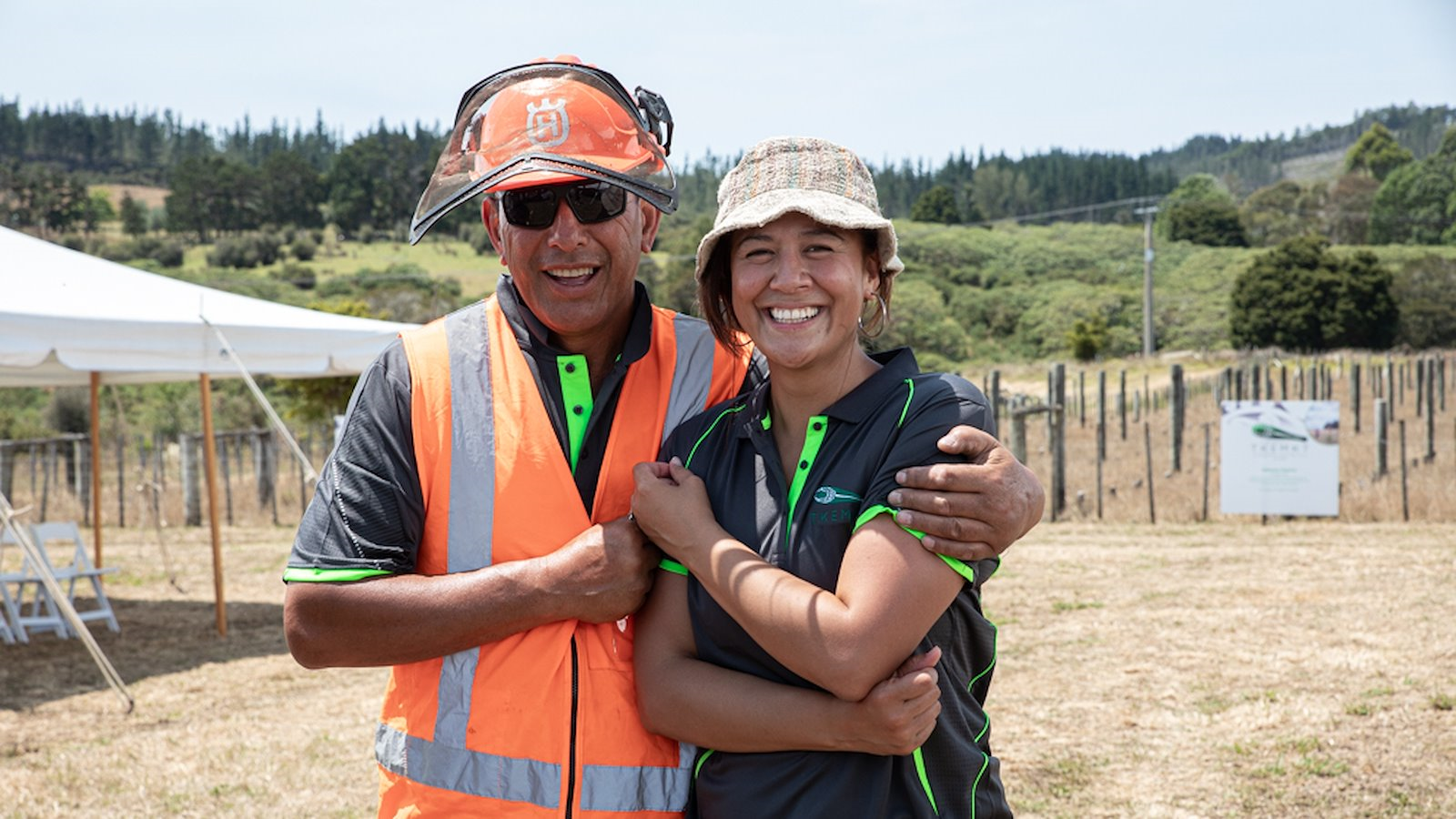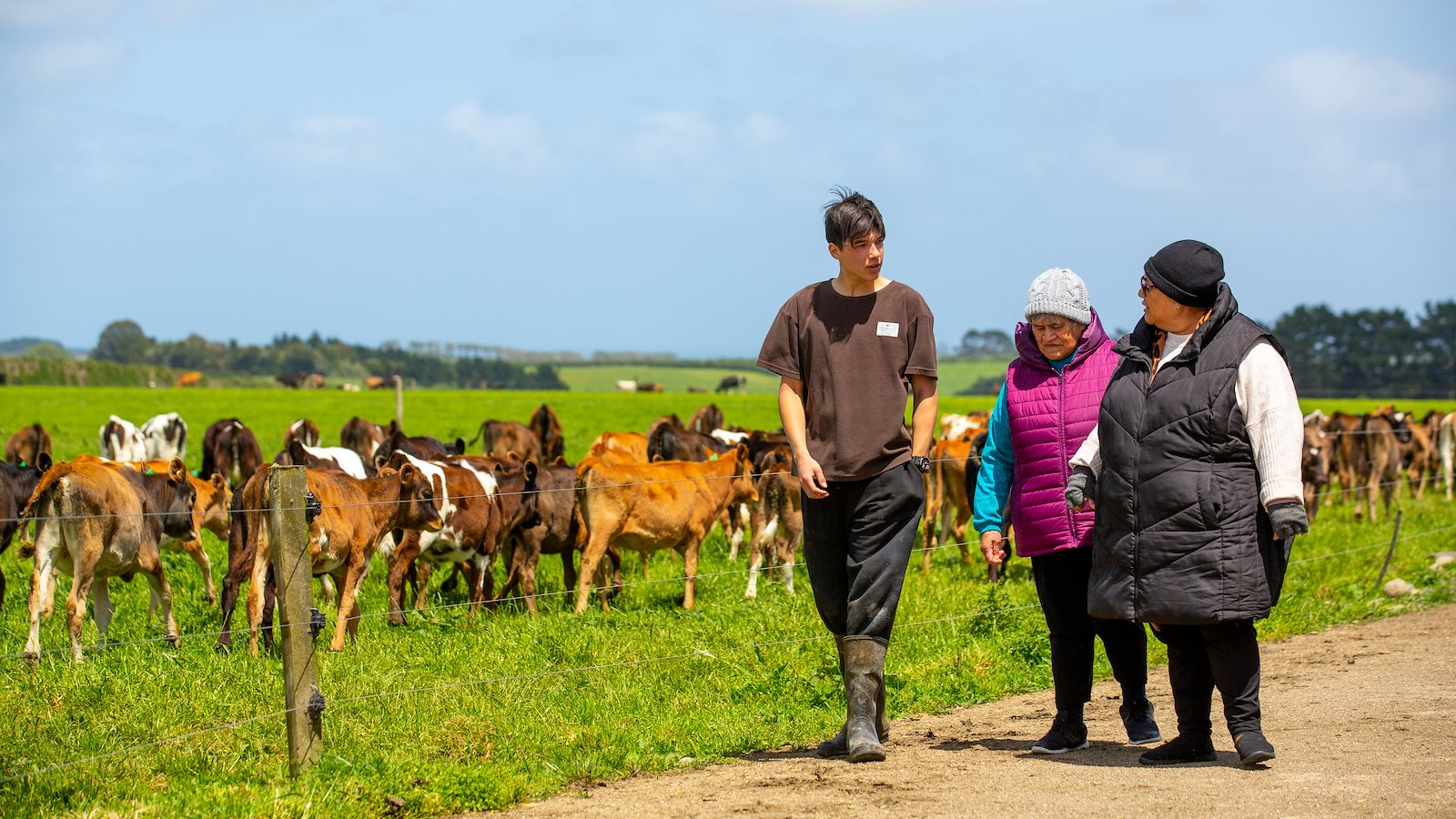In April 2021, the Government passed significant changes to reduce rating barriers for Māori landowners. Most of the changes outlined in the Local Government (Rating of Whenua Māori) Amendment Act 2021 will come into force on 1st July 2021.
Last updated: Rāpare, 22 Mahuru, 2022 | Thursday, 22 September 2022
What's on this page?

Marama Tiakitai Hart and her son, Bayden Barber on their ancestral whenua in Waimārama, just south of Hastings. Photographed by Josie McClutchie.
The changes are part of the Government’s wider commitment to supporting whānau and regional development through whenua by;
- reducing the barriers for owners of Māori freehold land who want to use, occupy, build houses on, and develop their whenua, particularly for those who have rates arrears.
- stimulating regional development – the value of fully utilising and developing Māori land could result in benefits of up to $1.4 to $2 billion over 40 years.
- providing greater consistency, equity and clarity around the rating of Māori land for the benefit of Māori landowners and local authorities.
Key changes
The key changes to the legislation to support the use and development of Māori land will:
- provide local authorities with the power to remove rates arrears
- make most unused land non-rateable including Ngā Whenua Rāhui kawenata land that has been set aside for conservation purposes
- provide a statutory rates remission process for Māori land under development
- allow multiple Māori land blocks from a parent block to be treated as one for rating purposes
- enable individual houses on Māori land to be rated as if they were one rating unit. This will enable low-income homeowners on blocks with more than one home to access rates rebates.
Other changes
The legislation relating to the rating of Māori land remained unchanged for almost 100 years. Changes to modernise the legislation affecting the rating of Māori land will:
- provide protection to Māori land made general land by the Māori Affairs Amendment Act 1967 from being leased or sold as “abandoned land sales”
- remove the arbitrary two-hectare limit on the non-rateability for marae and urupā
- extend the non-rateability for marae to all land, not just those on a Māori reservation
- clarify the obligations on trustees to declare income received from land if requested to ascertain rates liability
- clarify that homes on Māori reservations are liable for rates
- reference the preamble of Te Ture Whenua Māori Act 1993 in relevant local government legislation to signal the intent of the rating changes.


